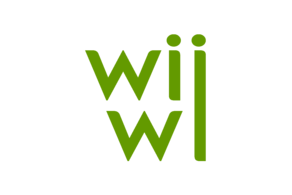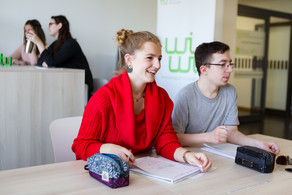Internationalisierung
Die Task Force Internationalisierung greift das Bestreben der TU Dortmund auf, als Universität und Fakultät im internationalen Hochschulraum noch sichtbarer zu werden. Sie erarbeitet Vorschläge zur Internationalisierung von Forschung, Lehre und Verwaltung gleichermaßen. Im Fokus stehen dabei die Ausweitung englischsprachiger Lehre, der Austausch von Forscher*innen über Ländergrenzen hinweg sowie die flächendeckende Einführung bilingualer (Studien-)Informationsangebote.
Mitglieder:
Prof. Dr. Liudvika Leisyte (Leitung, Professur Hochschuldidaktik und Hochschulforschung)
Prof. Dr. Tessa Flatten (Prorektorin Internationales, Professur Technologiemanagement)
Prof. Dr. Galina Zudenkova (Professur Öffentliche Finanzen)
Dr. Debra Hanning (Erasmus-Koordinatorin, Beauftragte für internationale Studierende)
Informationen zu Auslandssemestern und -praktika sind auf den Seiten der Erasmus-Koordination einsehbar.
Prof. Dr. Leišytė präsentiert die Motivation und die Projekte der Task Force:
Question 1: Professor Leisyte, as the leader of the Task Force Internationalization: Why is it so important, that the department made “Internationalization” one of its most important issues?
Internationalization is recognized as a highly important priority at TU Dortmund. It is central for high quality teaching and research and as our department has always been committed to excellence, internationalization is a natural priority. Attracting foreign students to our programs as well as sending our students to universities abroad add enormously to the student experience while studying at WiWi and thus, create more value for students entering the labor market upon graduation. Further, international networks, international research grants as well as collaboration in publishing with foreign colleagues are central for positioning of our department nationally and internationally. To me, as the leader of the Task Force Internationalization, these are the most important drivers for the commitment of the department to internationalization.
Question 2: Which topics are you actually working on within the Task Force?
After careful consideration of the status quo, evaluation of the achievements so far as well as identification of the areas for improvement, the Task Force has put forward the strategic goals to foster internationalization at our department for the period 2021-2025. After discussion with the professors at the department, the deans as well as with the Vice President International Affairs, we have set short-term, mid-term and long-term goals. The goals of internationalization range from increasing the number of courses offered in English, attracting more international students, fostering skills and capacities of staff towards internationalization, improving study and work environment, like organizing an International Day each semester and providing information and communication in English so that international students and staff feel welcome and can fully participate in the academic life of our department. Further, we aim to foster exchanges with scholars from abroad, provide more exchange spaces for visiting and local doctoral students and postdoctoral researchers. Our long term goal includes developing a new study program in English as well as offering a steady critical mass of courses in English in our Bachelor and Master programs.
Question 3: What is your vision, regarding Internationalization, for the year 2025?
Our TF vision for the WiWi department is to be a highly vibrant and internationally attractive place to study in various areas of Business Administration and Economics.









